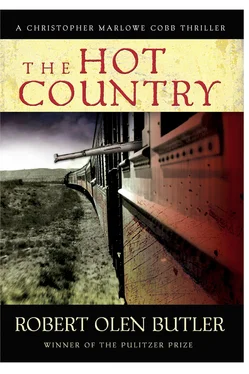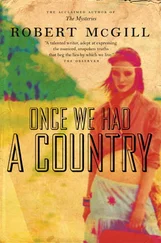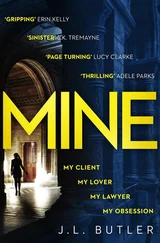So I leaned hard on the word “invasion” in spite of Woody’s sudden disavowal of further hostile intentions, which, actually, was a worse sin in the opinion of a lot of patriotic Americans, which was, indeed, the reason he had every American military man — not to mention all us news boys — fidgeting and fretting and fuming in Vera Cruz. Wilson’s public pose was that this was a simple operation to stop the German ship from unloading its munitions. But I figured every German official in Mexico thought otherwise. Krüger eyed me carefully for a moment. Finally he said, “You should be speaking to the embassy in Mexico City.”
“No American can go farther than El Tejar without being arrested,” I said.
“Or shot.” Krüger surprised me with this addendum, delivered quickly and with a little too much intensity, accurate though it was. A very faint smile brisked across his lips and vanished. He may have had no irony, but he thought he had a sense of humor.
“You understand the problem,” I said.
“I am not authorized to speak,” he said.
“Forgive me, Kapitän, for not knowing your chain of command. Is there no one here to consult?”
I knew, in fact, that there was a civilian consular officer at the end of that chain.
Krüger looked me in the eyes for another long moment. I returned the gaze steadily. If I flinched, if I looked away, I suspected he would say no. He might have anyway. Our gaze went on for another beat and another.
Then he rose from his chair.
“Wait, please. I will inquire,” he said.
He did a crisp left-face and moved across the room and through the open door into the courtyard, turning at once to the left and vanishing.
I waited a few moments and then rose from my chair, slowly, casually, as if I was being observed. I might have been. I looked at Wilhelm for a few moments. And I thought of Wilhelm and Wilson. Wilhelm and Wilson and Asquith and Poincaré. And Czar Nicholas. And Sultan Mehmed and Count Stürgkh. And, since I was standing where I was standing, I wouldn’t let myself forget Willie’s right-hand boy Theobald von Bethmann-Hollweg. Leaders of the world. What a bunch. A good war correspondent’s ardent employers. And I thought they would soon figure out how to find us more work. Quite soon.
I’d stared at the lithograph long enough. I drifted, quite nonchalantly, to the doorway leading to the courtyard. The blue and white pavement tiles were faded from decades of sun. The rosebushes were severely pruned and the stone fountain in the center was dry. There were voices from one of the doorways along the upper-floor gallery. To my left. A distant churn of guttural German sounds. Krüger and his boss. I didn’t expect anything from them. And then a door was opening on the right-hand upper gallery. I took a small step back, without losing my line of sight.
It was the tall man from the ship in the night. I could see his face for a brief moment, which moved me instantly farther backward, totally out of sight. I really didn’t expect anyone to reveal himself here. Or speak to me. I just needed to get near all this, put details in my head that might be useful. I certainly didn’t want to be seen by the tall man. If eventually I had to follow him, I did not want to be familiar to his eye. But I now had a clear image of his face, from the flash of it before me, and that much was valuable. Deep-set eyes. I did not catch their color, from this distance, but they certainly were not dark. Probably good, standard, Aryan aristocratic blue. And yes: His left cheek had the livid curve of an old fencing scar, his Schmiss, his smite, his medal of academic honor.
I sat down once more in my chair before the desk, and soon Captain Krüger returned. He did not sit. He stood behind the desk, his arms stiff at his sides. “I am sorry, Herr Cobb. We have nothing to say.”
“I’m sorry to hear that, Kapitän Krüger,” I said.
I rose. I added, “It was only from respect for your country’s opinions that I have sought you out.”
“We are aware of that,” Krüger said. “And we offer to you our thanks.”
He bowed at the waist. I bowed at the waist. I repressed the impulse to ask the reporter’s classically abrupt, unexpectedly knowledgeable question, in this case something like: Oh, and one other small thing, Kapitän, what is the mission of the important German official who snuck in here in the middle of the night from the Ypiranga ? But I could think of nothing Krüger might say in flustered response worth my revealing that I knew something was going on.
Almost as soon as I was on the street again, heading back toward my rooms and a siesta, which was a local custom I’d quickly taken to, I knew the story I’d file later today. West of the city, out in the Fourth District, a thick column of velvety black smoke was billowing up. I could feel the smoke in my nose, even from this distance, and in it, playing a feature duet downstage of the backup band of Vera Cruz street-carrion and sewage, were two distinct smells: crude oil and burning flesh. I’d known this moment was coming since after the first couple of days, so I’d already done the story’s back-matter reporting in preparation. Most of the locals continued to refuse to step up and claim the dead bodies of their countrymen. So the time had come for the Marines to burn the corpses. A nasty little story with popular appeal that would glide through the censors pretty much untouched, given a developing theme of our boys doing the necessary dirty work of civilization for a semi-savage people. A theme that had its own smell, to tell the truth, but the Army had its message and we had our papers to sell.
It’s funny how fast you can stop noticing a smell. Even a strong one. This is fortunate for a war correspondent. If you’re in the right places most of the time, it’s a foul-smelling job. There is always something dying or burning or exploding, and there are always newspaper-selling twists to put on stories. So by the time I got to my rooms and closed the door and found my clean laundry on my bed, my nose had calmed down, and I stepped away from my job and this town and the war, and the thought of Luisa came back to me, pretty much instantly, prompted by the American newspaper assumptions about Mexicans — how she’d hate that — but mostly prompted by my pants and shirts lying neatly folded there on my bed. It was like when I first saw her, sassing me in this room, and then a little later. I stepped to the doorway to the courtyard, half expecting to see her lounging once more under the banana tree, having reconsidered her new life, knowing I’d overlook the pistol to my head and welcome her back, even if she wouldn’t jump into bed with me.
She wasn’t there, of course. But the other two girls were. They were curled on pallets in the shade of the banana tree and they were fast asleep. Slim, sweet-faced girls, their arms bare in their work blouses, their knees tucked invisibly up under their skirts so only their bare feet showed. One of the girls arched her feet, flaring her toes from whatever it was that she was dreaming. I stepped quietly into the courtyard and took a few steps toward them, not wanting to disturb them, just being drawn in a tender way to their vulnerable obliviousness.
And now I was in a boardinghouse. Where? Providence maybe. Or Boston. It was noon and the sunlight was so bright outside that it illuminated the bed through the lowered, foxed window shade. Mother had a matinee in a couple of hours and she was taking her traditional fifteen-minute “goodly nap,” and perhaps on this afternoon she was playing Kate in Shrew, where the “goodly nap” comes from. Whatever the play, whatever town this was, I watched her lying there on top of the covers, clutching the pillow to her bosom, as she always did, and I was not yet a teen, not yet able even to grow chin-whiskers, but I stood beside her bed on this day for every one of her fifteen minutes of sleep and I watched her dark-stockinged right foot tap briefly in her dream, tap upon the air, though in her dream upon some floor, I thought, and I watched her foot stop and she pressed the pillow tighter against her and her eyes moved beneath her closed lids. I watched her eyes move, as she saw someone or something that I could not. And I felt very close to my mother in that moment, and I felt very distant from her. I felt I could never really know her. Ever.
Читать дальше












